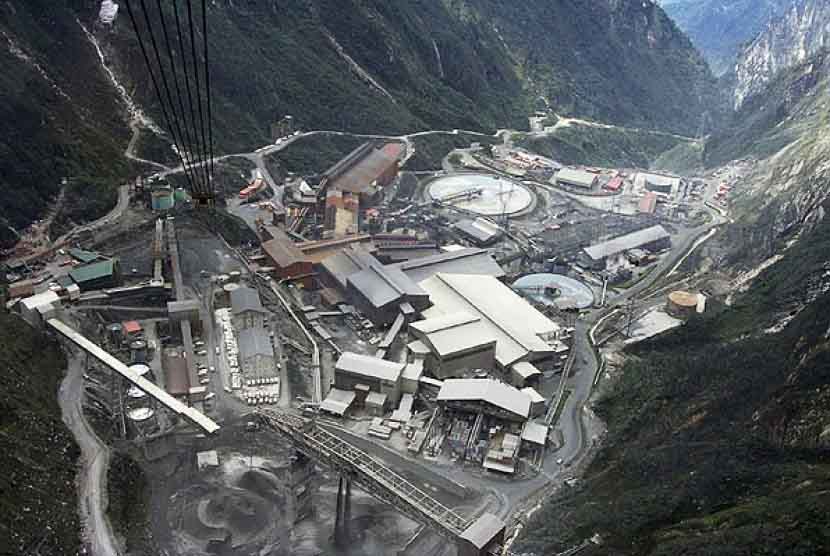REPUBLIKA.CO.ID, JAKARTA -- The Indonesian government has allowed copper and gold mining firm PT Freeport Indonesia to resume exports of concentrate until Oct 2017 after it secured a provisional special mining permit (IUPK).
The company received a recommendation to resume concentrate exports on Feb 17, Director General of Mineral and Coal of the Energy and Mineral Resources Ministry Bambang Gatot said here on Tuesday.
The permit will be valid from Feb 10 to Oct 10 this year. In total, Freeport will export 1.3 million tons of concentrate in one year, he stated.
Bambang noted that although the recommendation was issued for a period of one year, the exports will be supervised every six months.
With the issuance of the IUPK, Freeport will export concentrate while the new contract is still valid, Secretary General of the Energy and Mineral Resources Ministry Teguh Pamudji remarked. "During this period, it must pay export duties," he added.
Given the IUPK, the government will continue to respect provisions in the company's contract of work, he revealed.
Also read: Government agrees to give Freeport provisional IUPK
"IUPK is the operational basis for eight months , but we still respect provisions in the contract of work," he explained.
Teguh, who is also the chief of the government's negotiating team with Freeport, revealed that both sides will continue to find a solution to the problem over the status of the contract.
To solve the problem, the government has offered a short-term solution and a long-term solution.
The short-term solution includes the issuance of IUPK to ensure the continuation of Freeport's operations. The long-term solution includes negotiations on several issues including investment stability, divestment, and construction of smelters.
The temporary IUPK has no legal basis. However, he believed that it does not violate the agreement. Moreover, the agreement was signed by observing the state sovereignty.


